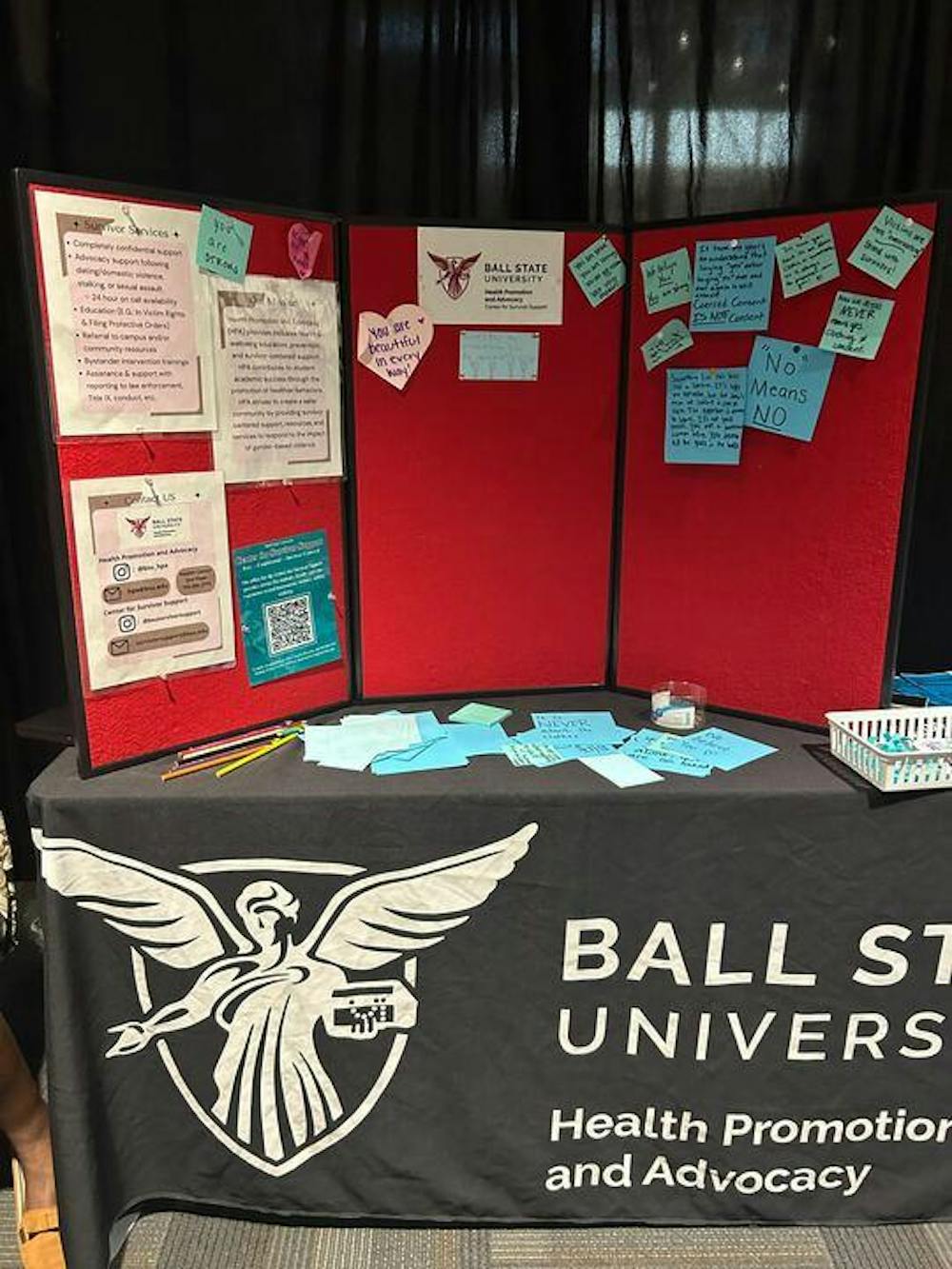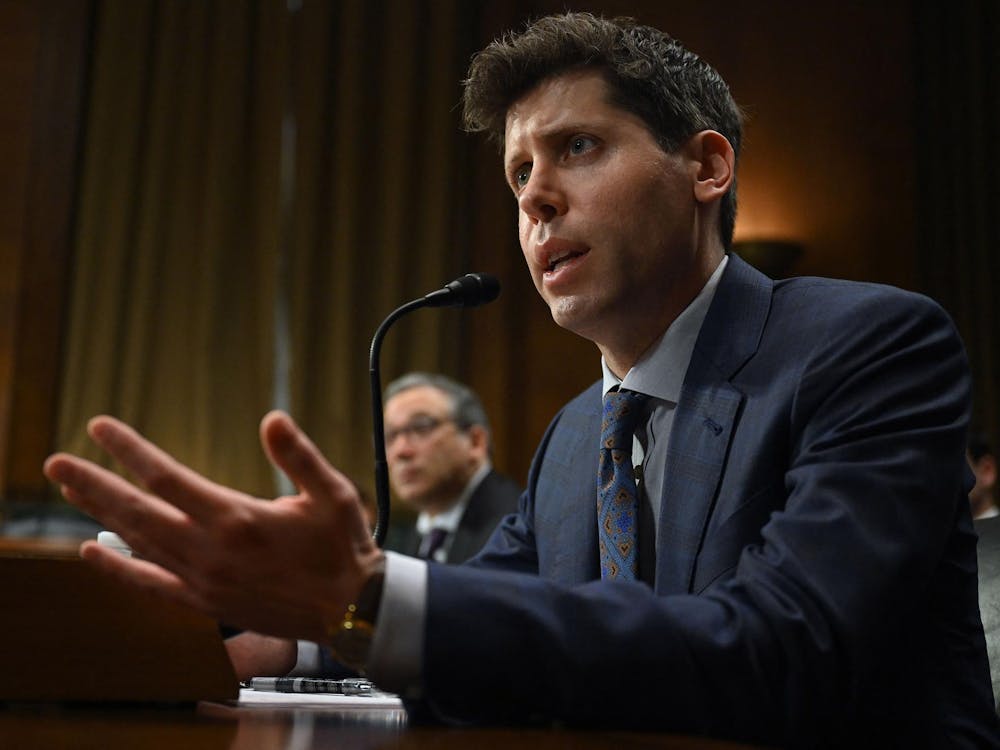“What were you wearing?”
Many sexual assault victims have to answer this question. It is a harmful form of victim blaming, as it insinuates that the clothes a person was wearing caused them to be assaulted, according to Ball State’s Center for Survivor Support.
April is Sexual Assault Awareness Month. Ball State’s Center for Survivor Support, Counseling Center, Greek Life and Alpha Chi Omega collaborated through multiple events to bring attention to how inhumane, yet common, sexual assault is.
The “What Were You Wearing” event took place in the Jo Ann Gora Student Recreation and Wellness Center on Wednesday, April 17, from 11 a.m. to 7 p.m.
The event displayed clothes inspired by what Ball State students said they had been wearing at the time of their victimization. Hoodies, t-shirts, khakis and dresses lined the walls alongside quotes from students regarding their victimization.
According to a 2019 survey conducted by the Association of American Universities, 13 percent of college students have reported being sexually assaulted.
“[Sexual violence] is gonna be a taboo topic that people don’t like to talk about,” Justin Howard-Davidson, staff psychologist for the Ball State Counseling Center said. “[Events like this] bring forward and show we do need to talk about this. It can also help people who might have experienced sexual assault or other gender-based violence … [and] help validate those experiences.”
According to the Sexual Assault Centre of Edmonton, victim blaming is defined as “someone saying, implying, or treating a person who has experienced harmful or abusive behavior (such as a survivor of sexual violence) like it was a result of something they did or said, instead of placing the responsibility where it belongs: on the person who harmed them.”
Questioning what the victim was wearing at the time of their victimization is a form of victim blaming. Derien Kunce, an intern at the Ball State Counseling Center said having events like this helps decrease victim blaming.
“Maybe an individual level in a counseling situation [would support the victim more]. Where do some of these beliefs come from? Where do we see this every day, and how can we challenge that? It needs to be talked about in a really wide variety of places,” Kunce said.
The Ball State Counseling Center is one place students can go to if they have experienced sexual violence. According to Luke Slater, a Ball State Counseling Center intern, one of the first things they do when someone who’s been sexually assaulted comes in, is alert them to all of the different resources that are available on campus. They refer people to the Center for Survivor Support, which handles Title IX cases.

Howard-Davidson said the Counseling Center does urgent appointments for victims.
“We have openings available now if people want to come in,” Howard-Davidson said. “We also offer urgent appointments as well. So, if something happened to somebody, they could come in for an urgent appointment.”
To end Sexual Assault Awareness month, Take Back the Night will take place at the Brown Family Amphitheater on, April 24 from 6 to 8 p.m. Survivors of sexual violence will speak on their experience and a march to bring awareness to it will end the night.
Contact Maya Kim at mayabeth.kim@bsu.edu or on X @MayaKim03.





